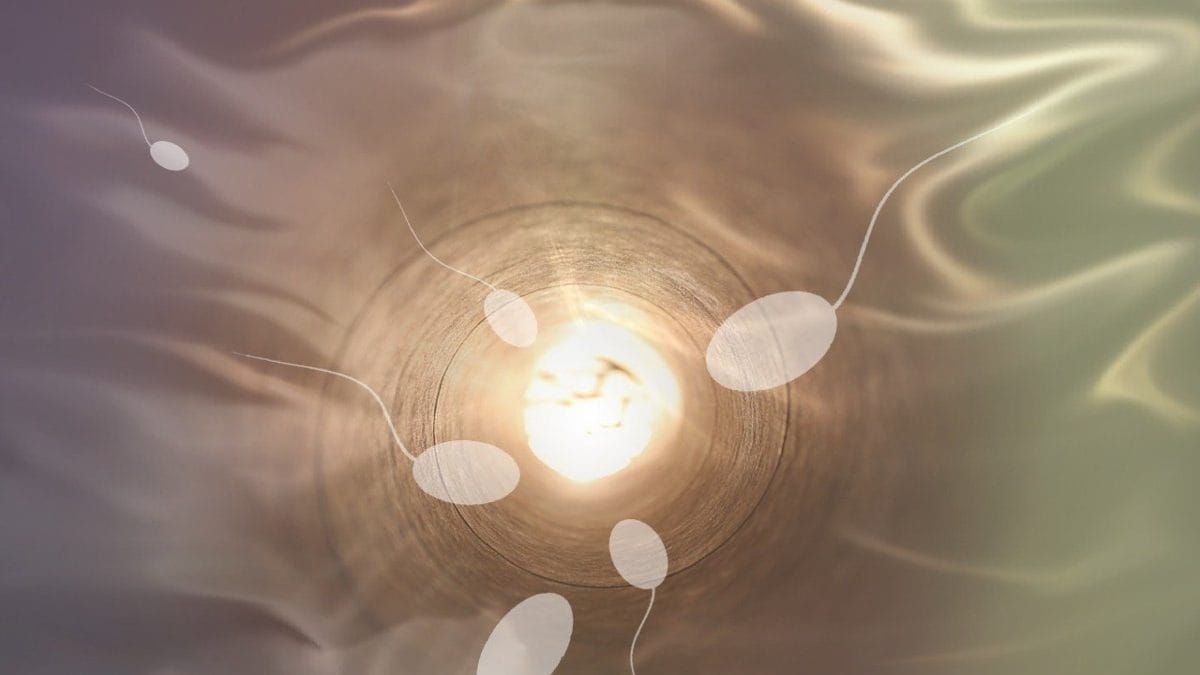Sperm production and regeneration is a complex biological process. (Representative image/Pixabay)
Sperm production, known as spermatogenesis, is a continuous process. Your body continually produces millions of new sperm every day to maintain a healthy level of fertility. However, if you ejaculate frequently, your sperm count may temporarily decrease.
Sex may permeate our popular culture, but conversations about it are still associated with stigma and shame in Indian homes. As a result, most people facing sexual health issues or trying to find information about sex often turn to unverified online sources or follow unscientific advice from their friends. To address widespread misinformation about sex, News18.com publishes this weekly sex column, titled 'Let's Talk About Sex.' We hope to start conversations about sex through this column and address sexual health issues with scientific insight and nuance.
In this article, we will break down everything you need to know about sperm regeneration timelines.
Have you ever wondered how long it takes your body to replenish its sperm supply? As a man, understanding the sperm regeneration and supply schedule can help you make smart decisions in the bedroom. Sperm production, known as spermatogenesis, is a continuous process. Your body continually produces millions of new sperm every day to maintain a healthy level of fertility. However, if you ejaculate frequently, your sperm count may temporarily decrease as your body works to produce more sperm. This is normal and temporary, but it is good to understand the regeneration process.
Understanding sperm production and regeneration
Sperm production and regeneration is a complex biological process. The sperm production cycle begins in the testes, where stem cells divide and mature into sperm. This maturation process is known as spermatogenesis. During this process, stem cells, known as spermatogonia, undergo mitosis and multiply. Some of these cells then differentiate into primary spermatocytes. These cells undergo the first meiotic division to become secondary spermatocytes, which then complete the second meiotic division to become spermatids. Spermatids further differentiate into mature spermatozoa, known as spermatozoa.
Each ejaculation releases between 200 and 500 million sperm. Even after ejaculation, some sperm remain in the internal reproductive organs. The prostate and seminal vesicles also continue to produce prostatic and seminal fluid respectively. This means that a healthy man can normally ejaculate and produce sperm again within a few hours. So if you ejaculate, it will take about two months for your sperm count to return to normal levels. However, sperm production is a constant cycle, so new sperm are always produced as the body ejaculates or reabsorbs mature ones.
The sperm regeneration cycle
On average, it takes about two months for the body to produce new sperm. This is known as the spermatogenic cycle. Here's a quick overview of what happens in the testicles during this cycle.
- Spermatogenesis: The sperm regeneration process begins in the seminiferous tubules of the testicles. This is where immature sperm called spermatogonia divide and transform into primary spermatocytes. These cells then go through meiosis I and II to become round spermatids. Spermatids continue to develop into mature spermatozoa, also known as spermatozoa or spermatozoa. This entire process from spermatogonia to sperm takes between 64 and 72 days.
- Transport and maturation: Newly formed sperm are transported from the seminiferous tubules to the epididymis, a coiled tube behind each testicle. Here, sperm mature and develop the ability to swim and fertilize an egg. Sperm remain in the epididymis for approximately 2 to 3 weeks until ejaculation.
- Ejaculation and rest period: When you ejaculate, sperm travel from the epididymis through the vas deferens and mix with seminal fluids to form semen. Ejaculation empties the reproductive tract and then the cycle repeats. After ejaculation, your body goes through a rest period before sperm production begins again. This rest period is usually one or two days for most men.
Factors affecting sperm regeneration time
Several key factors determine how quickly the sperm supply will be replenished after ejaculation. The main factors are:
- Age and health: Younger, healthier men tend to produce sperm at a faster rate. As men age, sperm production slows down.
- Ejaculation frequency: Ejaculating more frequently means that the body has to work harder to replenish sperm reserves. Infrequent ejaculation allows more sperm to accumulate, so regeneration takes less time.
- Lifestyle factors: Lifestyle choices such as smoking, excessive drinking, lack of sleep and drug use can negatively affect sperm production and slow regeneration.
Tips for healthy sperm regeneration
To regenerate healthy sperm, there are a few things you can do
- Keep hydrated: Drink plenty of water and other caffeine-free beverages to keep your body hydrated. Dehydration can inhibit sperm production.
- Get enough sleep: Aim for 7 to 9 hours of sleep per night. Lack of sleep can decrease testosterone levels and sperm production.
- Exercise regularly: Exercise increases testosterone levels and improves circulation, which improves sperm health and regeneration.
- Eat a healthy diet: A balanced diet with plenty of fruits and vegetables, whole grains, and lean proteins will provide the nutrients needed for sperm regeneration. Some key nutrients for sperm health include:
- Zinc: It is found in foods such as oysters, beef, pumpkin seeds, cashews, and chickpeas. Zinc helps sperm development and male fertility.
- Vitamin C: It is found in citrus fruits, bell peppers, broccoli, kale, strawberries, and tomatoes. It acts as an antioxidant and promotes the health and mobility of sperm.
- Vitamin D: Fatty fish, egg yolks and fortified foods. Important for testosterone production and sperm development.
- Limit alcohol, caffeine and nicotine: These substances can inhibit sperm production and lower sperm count. Limit alcohol to 1 drink per day, caffeine to 1 or 2 cups per day, and avoid nicotine completely.
- Manage stress: Try relaxation techniques such as yoga, meditation, deep breathing, and massage therapy. Too much stress can decrease sperm production.
So there you have it. The truth about how long it takes your little swimmers to get back to the pool. A few days of abstinence is all you really need to refill. But remember, quantity does not equal quality. Fertility involves much more than just sperm count. Stay healthy, take your vitamins, and don't worry too much about the numbers. After all, having a baby is more of an art than a science. Focus on your partner, encourage intimacy in the relationship, and let nature take its course in all its mysterious ways. The rest will take care of itself.














